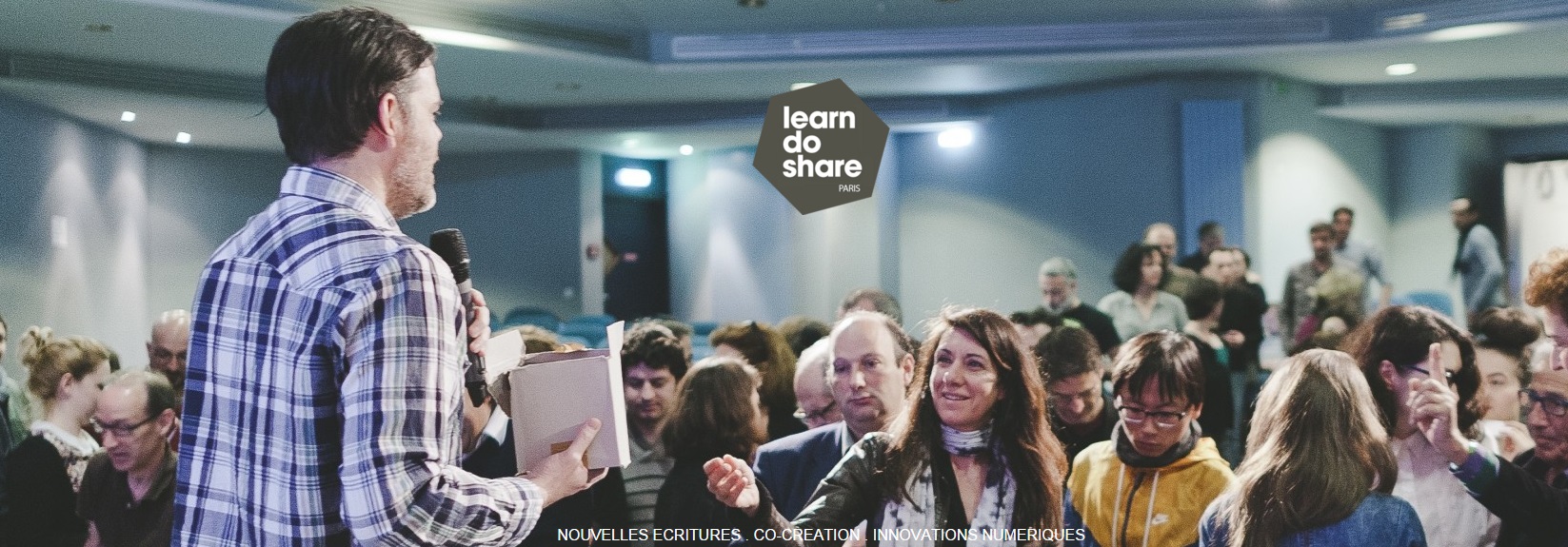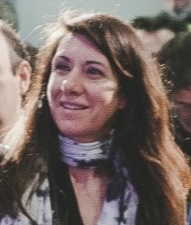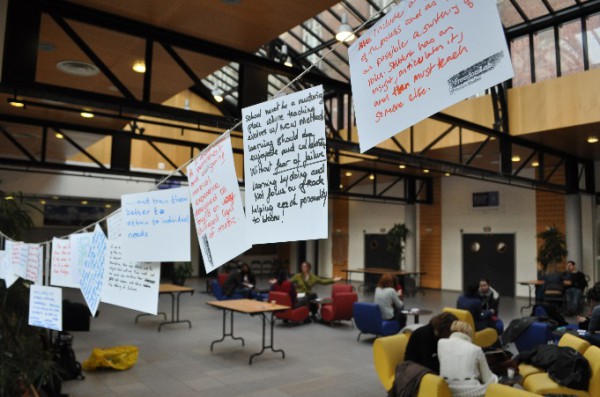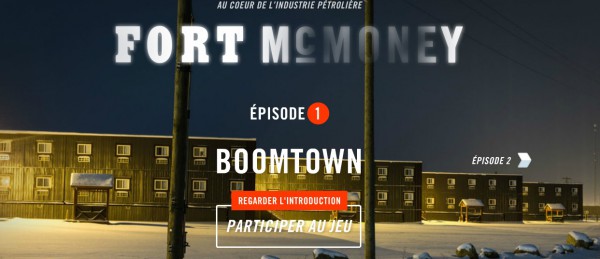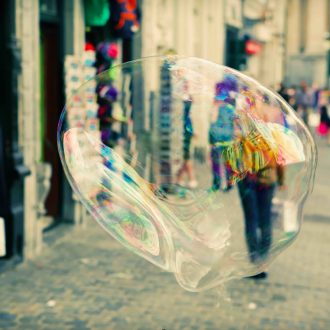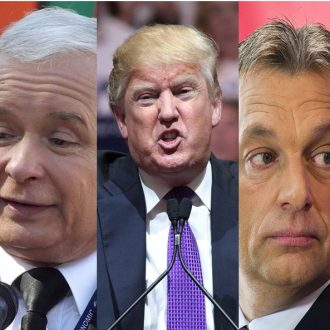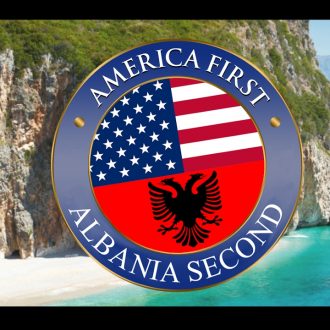Today, most of us understand the huge impact we are making on the environment. Experts agree that we need to act quickly to face the urgent problem of global warming. Yet, just a few weeks ahead of the international climate conference, COP21, taking place in Paris this December, people in countries like France still put the environment right down the list behind unemployment, delinquency and purchasing power (Ipsos Survey)… even though we are talking about the survival of humanity in the mid and even short-term.
Why aren’t people more interested? Is it because of the way the media covers ecology-related issues? Is it because of the words we use to describe our relationship with nature?
How can we tell people about this life-threatening issue that requires us to find a collective solution? To answer this question, Place to B carried out a series of interviews entitled “Storytelling & Ecology”.
Feature by Eve Demange.
“The collaborative alliance between games and storytelling makes it possible for people to act”
Professor of interactive storytelling and member of Learn Do Share Paris, Mireille Pacquet shares her thoughts about applying the power of storytelling to the environment.
Place To B : Why isn’t the environment a priority for the general public ?
Mireille Pacquet: I think people understand the environmental crisis we’re facing, but feel powerless to act.
We’re faced with an ultimatum hovering at the limit of our resources in terms of urban development and agricultural pollution. People are clearly increasingly aware of the fact that we are reaching a tipping point, a point of no return. We are witnessing the consequences of this in the form of storms, tsunamis and cyclones. People can easily visualise the problem and they understand what it represents in concrete terms. We are just tenants on this planet and we don’t have a VIP status.
But, being aware of a problem doesn’t mean that we can do something about it.
P to B : You discussed the topic of the environment during the last Learn Do Share in Paris. Tell us about more about this.
MP: Yes, the event, organised by the Paris city council, was based on the theme of “Future cities”. During the creative lab, we worked on the problem of “Paris zéro déchet” with the aim of making Paris a “zero waste” city by 2020, like San Francisco.
Lance Weiler, founder of Learn Do Share, Fabienne Olivier and Alexis Niki, Learn Do Share Paris and FreedomLab producers, led this creative workshop for 40 participants including storytellers, architects, students, game designers and urban designers. The aim? Discuss the idea of “zero waste”, whilst adding a strong collaborative dimension. We used a method that combines storytelling and design thinking to imagine future scenarios from which stories can be created.
Narration is a powerful tool in generating action. This alliance between collaboration and storytelling creates a kind of magic that suddenly gives people superpowers. The participants evolved and moved through many different phases during the two days.
When they arrived at the lab they were resolute and had very clear ideas. Then the informing speakers – subject specialists Laura Chatel from Zero Waste and Fabienne Giboudeaux from the Paris local government – arrived. They provided lots of facts and figures, for example, that each French inhabitant produces 314 kilos of waste each year. The participants weren’t aware of these statistics and they were all taken aback. They felt totally powerless, but determined to do something to change the situation. We then brainstormed the best ways to deal with the problem.
Using narration and stories, we set about finding solutions based on a creative process inspired by the EDIT model:
- Empathy phase: defining the problem together
- Intensive creative phase: letting your imagination go wild
- Testing, creating prototypes and re-testing to reach concrete solutions
- One of the solutions we came up with was a system of intelligent bins to help educate people and raise awareness. The participants wanted to focus on an educative dimension, which is essential in a project seeking change people’s behaviour and habits.
P to B : Why do the media have a problem with the environment?
MP: We need to do the opposite of what the media generally does. We need to change the way we talk about and portray issues relating to the environment. We need to empower people to act by giving them “soft weapons”. Stories can bring together and strengthen communities, so that they can take collective action. Ecologists should start telling stories through interactive games.
David Dufresne, member of the Open Documentary Lab at MIT in Boston, is doing just this. He uses new forms of narration and interaction in documentary games such as Fort Mc Money. New technologies and transmedia reinforce the power of our stories through their immersive and participative dimension.
It goes without saying that statistics are still important in transmitting information. However, telling a story is often more effective in raising awareness. David Dufresne’s game allows players to feel that they can bring about change and don’t just have a passive role.
P to B : Why is storytelling so effective?
MP: It connects to something inside of you. By helping you identify with a person or situation, a story connects with internal experiences. And, if the story touches you, it makes you want to act. When you watch a documentary about melting icebergs it is terrifying, but, at the same time, you perceive it as an external situation that doesn’t necessarily resonate with you.
This resonance can also also generated through interactions and exchanges via different networks. Open discussion groups help prepare us psychologically. Increasingly, people are uniting without getting involved in politics because they can now act together thanks to these networks.
P to B : For you, who are the greatest modern storytellers?
MP: For me, Pierre Rahbi is a great storyteller. In many ways, he is similar to traditional storytellers but with a fairer, more realistic and modern vision. He criticises many things with a strong sense of just how important words are. He raises awareness through stories like the legend of the hummingbird : “I going to do my bit”. I do what I can when I can and even if it is only a little it still counts.
More to read
Isabelle Delannoy : “The environmental crisis is a crisis of mythology.”
Anne-Sophie Novel : “Ecology in the media ? People say it doesn’t sell !”
Cyril Dion et Mélanie Laurent : “We’re talking about so much more than ecology ; this is a whole new way of envisaging the world.”
